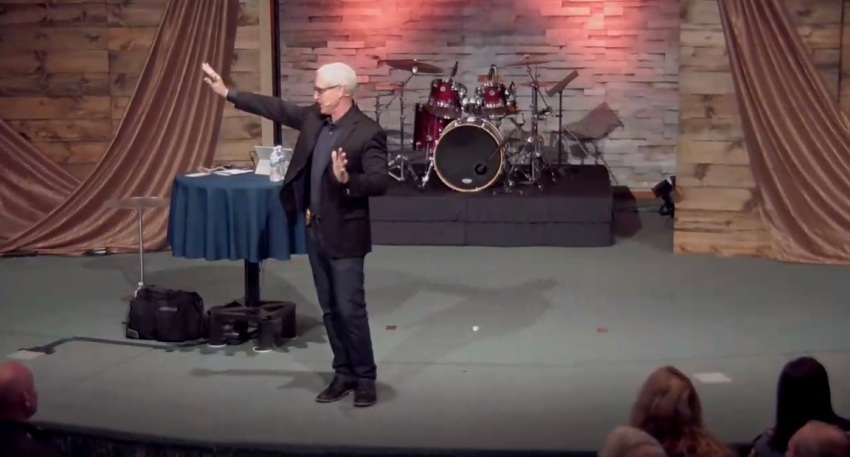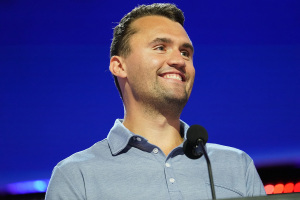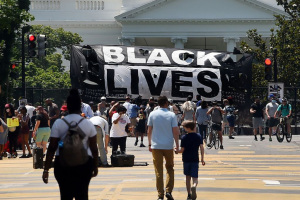Cold case detective: I'm a Christian because of 'data', not 'because it works for me'

A detective and former atheist who specializes in dealing with cold cases professed that he's a Christian because of the “data” in the Bible and not “because it works for me.”
J. Warner Wallace, a former homicide cold case detective and senior fellow at the Colson Center for Christian Worldview, gave a presentation Saturday as part of an apologetics conference held at Lakes Free Church in Lindstrom, Minnesota.
After describing the various arguments in favor of the reliability of the Gospels from a cold case detective's perspective, Wallace told those gathered that it was the evidence that directed him to Christianity rather than hitting a personal low.
“When you ask me ‘why are you a Christian?’ I try to be careful about this. I’m not a Christian because it works for me. I’m not. I’m a Christian because of all this data,” he said, pointing to a slide that outlined his earlier points.
Wallace described how various methods connected to cold case investigations could be used to vindicate the Bible. These included analyzing the witness testimonies of the Gospel writers and the extent to which they changed over time. Or in this case, the lack of change of the Gospel accounts over the years.
“I didn’t have something that I was trying to fix when I became a Christian. I had a great life before becoming a Christian. I know a lot of people have transformation stories. I get that. But I wasn’t drinking and carousing and beating my wife and then Jesus cleaned up my life. That was not my story.”
He went on to explain that he and his wife, Susie, were married in 1979 and were together for 18 years before either of them converted. They've been wedded 22 more years since then.
“If you ask Susie which of those two brackets was easier, she will always tell you the first 18 was easier,” Wallace said.
“Why? Because it’s easy to throw the dart against the wall and just go draw the bullseye wherever the dart lands. And that was our life the first 18 years. … Now the target is pre-drawn and it’s a high standard.”
Wallace also talked about how important it was to have a relationship of some kind with the people he's trying to reach with his arguments, saying that it's about “truth in the context of relationship.”
“I’m not just going to bang this out on Twitter and expect you to go ‘oh, I’m changed now.’ It’s a relationship,” continued Wallace.
Wallace was the author of multiple books, most notably Cold Case Christianity, in which he uses the methodology of a cold case detective to argue that the Gospel accounts of Jesus’ life are valid.
Tim Barnett of Stand to Reason, another speaker at the apologetics conference, gave a speech on Friday evening about why evil exists in the world.
“It’s not surprising that the problem of evil has produced more atheists and skeptics and agnostics probably than any other challenge,” said Barnett.
“The problem of evil remains a question on the minds of many people, including Christians. We’re not to asking questions like ‘why so much evil in the world?’”
Barnett added that, if anything, the existence of evil vindicates the argument that there is a God, as it points to a higher moral law, which would have required a moral lawgiver.
This echoes what is commonly known as the Moral argument for the existence of God, which Got Questions noted had a basis when looking at the human race.
“In support of the moral argument, we see that even the most remote tribes who have been cut off from the rest of civilization observe a moral code similar to everyone else's,” stated the website.
“Although differences certainly exist in civil matters, virtues like bravery and loyalty and vices like greed and cowardice are universal. If man were responsible for that code, it would differ as much as every other thing that man has invented.”
Barnett told the conference attendees that many atheists “try to make these moral arguments against God, all the while they need God to make their case.”
“I’m not saying you can’t know right and wrong, good and evil, my argument is that you can’t ground it. You have no basis for your morality,” continued Barnett.
“Atheists can know objective morality while denying there’s a God, the Author of morality. But there would be no morality, objective morality, in the first place to know unless God exists.”



























